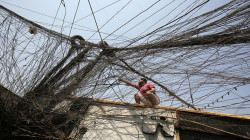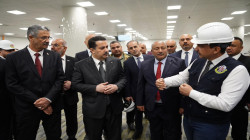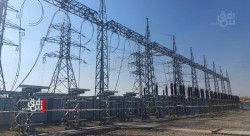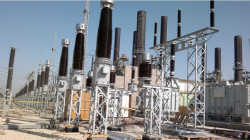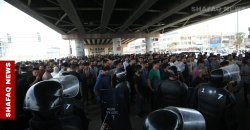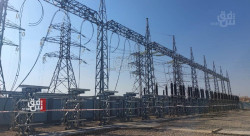Karbala’s winter of discontent: A power crisis grips the Holy City
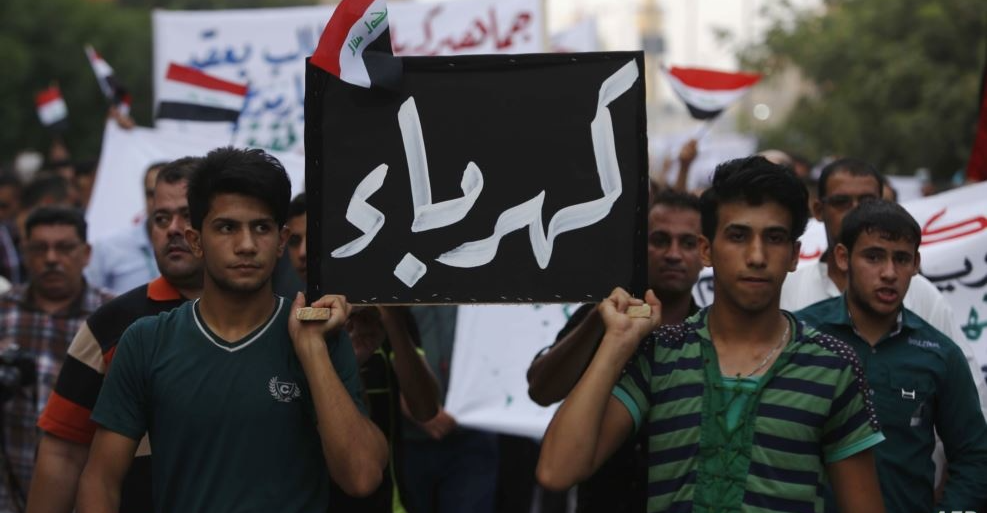
Shafaq News/ As winter sets in, Karbala, one of Iraq’s most revered cities, finds itself at the center of a suffocating electricity crisis, with residents enduring up to five hours of power outages for every hour of supply. The situation, exacerbated by the halt of Iranian gas exports and long-standing mismanagement, has left millions grappling with the cold, inadequate heating, and unreliable access to essential resources.
Human Impact: Karbala Families Suffer
Abu Ahmed, a resident of Al-Hindiya district in Karbala, articulated the challenges faced by the community due to limited national electricity. “The harsh weather conditions have rendered basic activities, such as bathing, increasingly difficult, attributed to the inadequate electricity hours and the consequent inability of water heaters to provide hot water. The struggle to obtain fuel sources such as oil and gas has compounded the situation.”
Abu Ahmed pointed out that the allocations for oil are minimal and insufficient to meet the population’s needs, with many residents yet to receive their designated share. Additionally, gas availability has been inconsistent, forcing citizens to turn to the black market for these essential resources.
He called upon the local government and the Ministry of Electricity to “devise immediate solutions to address this crisis, particularly for children’s needs, including access to warm water for bathing and the necessary heating for an effective study environment, especially with mid-year exams on the horizon.”
Provincial Challenges: Karbala’s Dire Electricity Supply
Deputy-chairman of Karbala Provincial Council, Mahfouz al-Tamimi, highlighted the electricity supply challenges faced by the province, noting that “Karbala has experienced a persistent shortage of electricity, with current supply levels at only 550 megawatts, far below the minimum requirement of 2,200 megawatts.”
He explained that “of the 550 megawatts supplied, approximately 50% is allocated to emergency projects including healthcare, water, sanitation, and essential security sites. This allocation leaves less than 250 megawatts available for the general population, which is particularly concerning given the decrease in temperatures.”
Karbala’s electricity shortage became particularly pronounced during the recent Al-Arbaeen Pilgrimage when about 20 million people from around the world gathered in the city to mark the 40th day of mourning for the martyrdom of Imam Hussein bin Ali, Prophet Mohammed’s grandson. Following this occasion, discussions were held between the local government and Prime Minister Muhammad Shia al-Sudani, resulting in a special plan aimed at addressing the ongoing crisis. Unfortunately, the situation has since deteriorated rather than improved.
Al-Tamimi mentioned that “the Prime Minister had previously instructed the Ministry of Electricity to devise a specific plan for Karbala Province. Despite the considerable time that has passed since this directive, implementation has yet to occur.”
He also pointed to inequities in electricity distribution, stating that “Karbala is the most severely affected province regarding electricity distribution.”
Residents experience one hour of supply for every five hours of cuts, whereas some provinces receive up to 20 hours of electricity supply, according to him, attributing this disparity to factors such as population ratios, the electricity production capabilities of various provinces, and the unique characteristics of Karbala, particularly considering the influx of visitors. Al-Tamimi emphasized the need for coordinated efforts between the Ministries of Electricity and Oil to address the crisis effectively.
National Failures: Mismanagement and Reliance on Iranian Gas
Bassem Al-Ghribawi, a member of the Iraqi Parliamentary Oil and Gas Committee, attributed the ongoing electricity crisis to “longstanding mismanagement by successive governments and the Ministry of Electricity,” stressing the necessity of improved coordination among the relevant ministries, including electricity, oil, finance, and planning.
Al-Ghribawi criticized the reliance on Iranian gas, which is subject to interruptions, stating, “The electricity supply in Iraq suffers when Iranian gas is cut off.” He also highlighted the impracticality of importing power plants designed for gas when Iraq has access to crude oil, black oil, and other derivatives that could be utilized as alternative energy sources.
To address the crisis, Al-Ghribawi revealed parliamentary initiatives, including the formation of an investigative oversight committee to monitor electricity quota distribution among provinces. An official administrative order for this committee will be issued shortly.
Shafaq News Agency sought a response from Ahmed Musa, spokesperson for the Iraqi Ministry of Electricity, regarding the current electricity crisis. As of this writing, no response has been received. However, on December 2nd, Musa clarified that “the interruption of Iranian gas supplies is attributed to maintenance work on their end, which is expected to last for approximately 15 days.” He assured that once the maintenance is complete, the gas would be supplied according to previously agreed-upon quantities, allowing Iraqi power plants to operate at full capacity.
Efforts and Prospects: Seeking Long-Term Solutions
Musa acknowledged the reliance on imported gas, stating that domestic production is insufficient to meet electricity needs. However, he expressed confidence in the government’s commitment to addressing this issue, noting that efforts to exploit domestic gas resources are progressing.
“Several domestic gas fields are included in the fifth licensing round, with ongoing work aimed at their exploitation. A sixth-round has also been initiated, although Musa cautioned that it could take 3 to 5 years to fully utilize domestic gas to meet electricity demands.”
Since the 1990s, Iraq has relied on a scheduled power outage system due to insufficient electricity generation, prompting citizens to depend on private generators to compensate for the energy shortfall. To address this gap, Iraq imports electricity and natural gas from Iran, which accounts for approximately one-third to 40% of its energy needs. However, the country faces challenges in facilitating these payments due to US sanctions, which restrict Iran from receiving payments solely for non-sanctioned goods such as food and medicine.
Simultaneously, Baghdad is pursuing electricity interconnection projects with neighboring countries to ensure a stable energy supply without necessitating fuel for operation. This is particularly important given the instability in Iranian gas supplies, which has resulted in a loss of over 4,000 megawatts for Baghdad.
The United States has urged Iraq to diminish its dependence on Iranian gas. In pursuit of alternatives, Iraq announced in August 2023 the signing of a preliminary agreement with Turkmenistan for gas imports, aiming to address part of the energy requirements for its power plants. However, despite these efforts, Iran remains the main source of power supply for Iraq.
